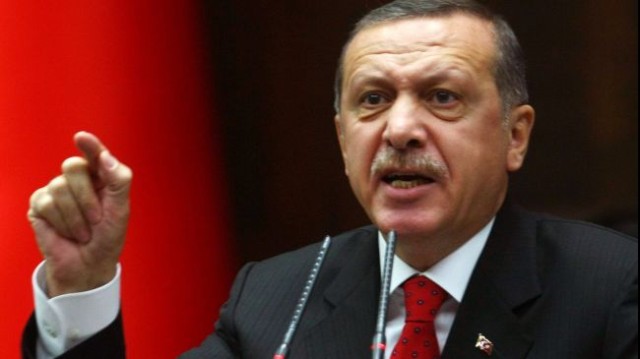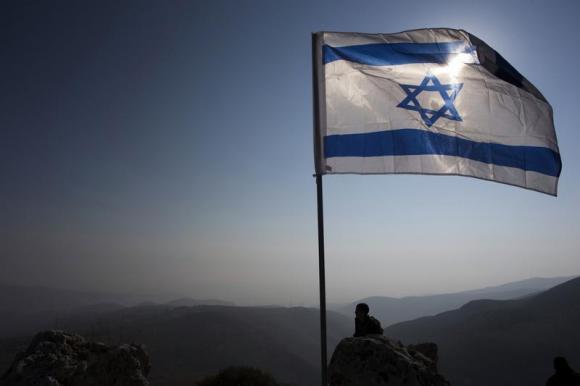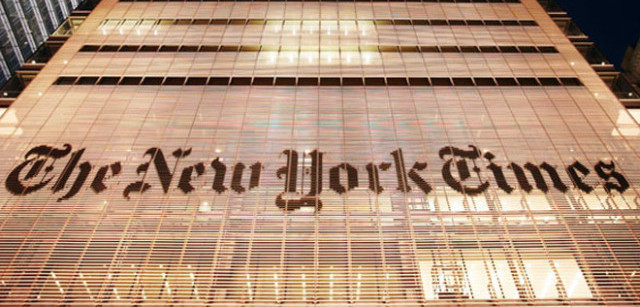Turkey’s Erdogan: Purges Police, Stymies Corruption Investigation and Prepares to visit Iran
Turkish Premier Erdogan has aggressively pursued a purge of police involved with public prosecutors corruption investigation in a desperate move to stave off potential losses for the AKP in the March 2014 municipal elections. His actions reflect the internecine battle between two former Islamist allies, Erdogan of the AKP and Sheikh Mohammad Fethullah Gulen and his followers who have penetrated both police and the judiciary in Turkey. At the top of the Turkish government in the largely ceremonial post is co-founder of the AKP and current Turkish President, Abdullah Gul, a Gulenist. Gulen is being urged to exercise his powers under Turkey’s constitution that might include an independent comprehensive investigation of corruption and perhaps a call for new elections. Despite calls for Gul to act, he remains sphinx-like on the sidelines keeping a watching brief on the swirl of the corruption charges until evidence of wrongdoing by the inner circle of Premier Erdogan surfaces. We had reported on the alleged involvement of Erodan’s son, Bilal in a money laundering scheme benefitting Al Qaeda affiliates in Syria. There are reports from the New York Times and the Washington Post in the US and from Today’s Zaman and Hurriyet Daily News in Turkey on overnight developments and comments from Turkish secular political opponents of the Islamist AKP regime of Premier Erdogan.
More than 600 police were involved in the overnight purge; 350 were removed from Ankara posts, while 250 were “brought in from elsewhere”. Hurriyet Daily News (HDN)reported the removal of 16 police chiefs from provincial posts:
Police chiefs of 15 provinces across Turkey, including Ankara and Izmir, and the deputy head of the national police department were dismissed overnight by the Interior Ministry.
The dismissal of the Ankara police chief, Kadir Ay, comes only a day after 350 officers working in key operational units were relocated in one sweep. The head of the Izmir forces, Ali Bilkay, has also been relocated.
Erdogan used intimidation in personally threatening the Istanbul prosecutor. Note what the prosecutor’s remarks in this HDN article:
A prosecutor who has supervised a recent corruption probe claimed Jan. 8, 2014 he was “threatened” by two people sent by Prime Minister Recep Tayyip Erdogan to stop the investigation.
“Two people who were former members of the high judiciary were sent to me by Prime Minister Recep Tayyip Erdo?an,” Zekeriya Öz, who was removed from his post as deputy Istanbul chief prosecutor following a graft investigation that included the sons of three former Cabinet members, told reporters Jan. 8.
“Those two people I met at a hotel in Bursa told me that the prime minister was angry with me, I should write a letter of apology and stop the probe immediately, or I would be harmed.”
In the midst of this were new allegations of corruption in the port of Izmir involving the Turkish National Railways. HDN reported:
Elsewhere, three senior Izmir officers were dismissed after launching fraud investigations into transactions at commercial harbors operated by the Turkish State Railways (TCDD) in which 25 people were detained.
The suspects, including eight TCDD officials, were taken into custody on charges of bribery, corruption, conspiring to rig tenders and leaking information about tenders as part of a fraud investigation launched by the Izmir Public Prosecutor.
They included senior officials such as the director of the Izmir port and his two deputies, while reports also claimed that an arrest warrant had been issued for the brother-in-law of former Transport and Urban Planning Minister Binali Yildirim, who works in the company of a CEO taken into custody during the raids.
Then the Judiciary weighed in on developments in Istanbul, HDN noted:
… the Supreme Council of Judges and Prosecutors (HSYK) launched an investigation yesterday into newly appointed Istanbul Police Chief Selami Alt?nok, who replaced Huseyin Capk?n after the latter was reassigned as part of the probe.
Today’s Zaman noted HSYK’s authority to conduct such an investigation, unusual given the unraveling corruption charges and questionable Erdogan moves:
The HSYK has the authority to launch investigations into police chiefs based on a law adopted in 2005. This is the first time the HSYK has exercised its authority to launch an investigation into a police chief.
There is a separate development arising from calls for a possible retrial of secular senior Turkish military officers convicted in alleged plots to overthrow the Islamist AKP government, see our most recent Iconoclast post. This was a meeting today with the head of the Turkish Bar Association and the Erdogan Justice Minister. Today’s Zaman reported that:
Turkish Bar Association (TBB) President Metin Feyzioglu [met] with Justice Minister Bekir Bozdag, Wednesday.
During their meeting, Feyzioglu and Bozdag discussed possible legal avenues for the retrial of military officers convicted of coup plotting. On Thursday, Feyzioglu is scheduled to hold separate meetings with Parliament Speaker Cemil Cicek, Republican People’s Party (CHP) leader Kemal Kilicdaroglu and Nationalist Movement Party (MHP) leader Devlet Bahceli to discuss the issue.
Scores of Turkish Armed Forces (TSK) members — both retired and on active duty — were imprisoned as a result of the Sledgehammer and Ergenekon coup trials. These cases were concluded in 2012 and 2013, respectively. The Supreme Court of Appeals recently upheld a lower court’s verdict in the Sledgehammer case, while the appeals court is currently reviewing the Ergenekon case.
On Jan. 3, 2014 Feyzioglu visited President Abdullah Gul at the Cankaya presidential palace to discuss the situation of the convicted officers. In a press conference after the meeting, Feyzioglu said the TBB had outlined a proposal that included nullifying decisions made by specially authorized courts; retrying cases heard by those courts at high criminal courts; abolishing regional high criminal courts that replaced specially authorized courts; and paying compensation for improper arrests and convictions.
Meanwhile the main secular opposition, the People’s Republican Party (CHP) lead by Kemal Kilicdaroglu in Turkey’s parliament has kept up a stream of constant criticism of Erdogan endeavoring to place him at the center of the corruption probe. Yesterday, he questioned the Turkish Intelligence (MIT) report on the illegal gold trading submitted in April 2013 involving Azeri Iranian businessman Reza Zarrab. Today’s Zaman reported Kilicdaroglu saying:
In a weekly meeting of his party’s parliamentary group on Tuesday, Kilicdaroglu addressed reports published Monday in a number of media outlets claiming that the National Intelligence Organization (MIT) submitted a report to Erdogan on April 18, 2013 detailing the shady relations – involving bribery and influence-peddling – of certain ministers with Iranian businessman Reza Zarrab, who is under arrest. “I would like to ask the prime minister about what he did upon receiving this report. Did you call these ministers and talk to them? Did you talk to your children? He didn’t. He is the one who gave these orders,” Kilicdaroglu said.
Erdogan is busy preparing for a trip to Iran later in January. According to Press TV, the purpose of the visit is to “upgrade relations” with the Islamic regime. Iranian Foreign Minister Mohammad Javad Zarif took time out from his conduct of negotiations with the P5+1 last weekend to confer with Premier Erdogan and Turkey’s Foreign Minister, Ahmet Davutoglu. The purpose of those meetings and the upcoming one late this month is to focus on trade, now that the P5+1 sanctions regime has allegedly been lifted. This despite Turkey’s membership in NATO and as a US ally. Press TV noted:new US Senate
During the Zarif-Erdogan meeting, Iran and Turkey underlined their determination to boost the value of bilateral trade volume.
During a visit to Tehran in November, Davutoglu said his country can become an energy corridor for its eastern oil- and gas-rich neighbor, Iran.
In October, the Turkish minister of energy and natural resources said Turkey will raise its gas imports from Iran – currently standing at 10 billion cubic meters a year – if possible.
Iran is Turkey’s second biggest gas supplier after Russia. Turkey uses a significant portion of its imported Iranian natural gas to generate electricity.
But why should Turkey be any different from British parliamentary and French delegations, the latter seeking to exploit minerals, steel and auto investment projects and other opportunities given the lifting of sanctions?
Erdogan, as we noted earlier, is desperate to stifle the corruption investigations, and maintain calm in the roiling foreign exchange markets for the Turkish Lira amidst concerns raised by the EU, and more importantly credit rating agencies like Fitch.
Meanwhile Iran’s wrecking crew in the US is beavering away trying to sabotage new sanctions legislation pending in the US Senate that appears to have majority bi-partisan support for passage of the bill co-sponsored by Senate Foreign Relations Chair Robert Menendez (D-NJ) and Mark Kirk (R-IL). A Washington Free Beacon report,“Pro-Iran Shadow Lobby Launches Bid to Kill Iran Sanctions” drew attention to a letter from the Iran Project and its relations with Iranian lobbyists in Washington, DC:
Ploughshares has touted the Iran Project’s work on multiple occasions, referring to it “as a group of highly respected national security experts and former U.S. government officials.”
“The reports released by the Iran Project are very influential among decision makers in Washington,” NIAC wrote of the group in April.
“These are many of the same foreign policy experts who opposed the toughest Iran sanctions that got us to this point,” Mark Dubowitz, executive director of the Foundation for Defense of Democracies (FDD) tweeted on Monday.
Others cautioned against taking seriously this latest anti-sanctions lobbying bid. “This is a group run by people who support Iran, are celebrated by the Iranian media, and are deeply embedded in a network of organizations that have consistently sought to weaken the U.S.’s leverage in attempting to denuclearize Iran,” said one senior official at a Washington-based pro-Israel group.
Erdogan’s Turkey cozying up to Iran, while filtering arms and funds to the latter’s opponents in Syria would appear to be opportunistic. Is it to secure natural gas for Turkish domestic and manufacturing needs in exchange for machinery sales that just might find their way to assist in making a new generation of centrifuges for uranium enrichment? In the meantime Erdogan might be in danger politically given the latest round of corruption investigations and possible retrials of jailed secular senior military officials. Either way, the Obama Administration has its hands full dealing with the metastasizing Al Qaeda in Syria and Iraq making hollow his 2012 campaign theme that ”Bin Laden is dead and Al Qaeda is on the run”.
EDITORS NOTE: This column originally appeared on The New English Review.




